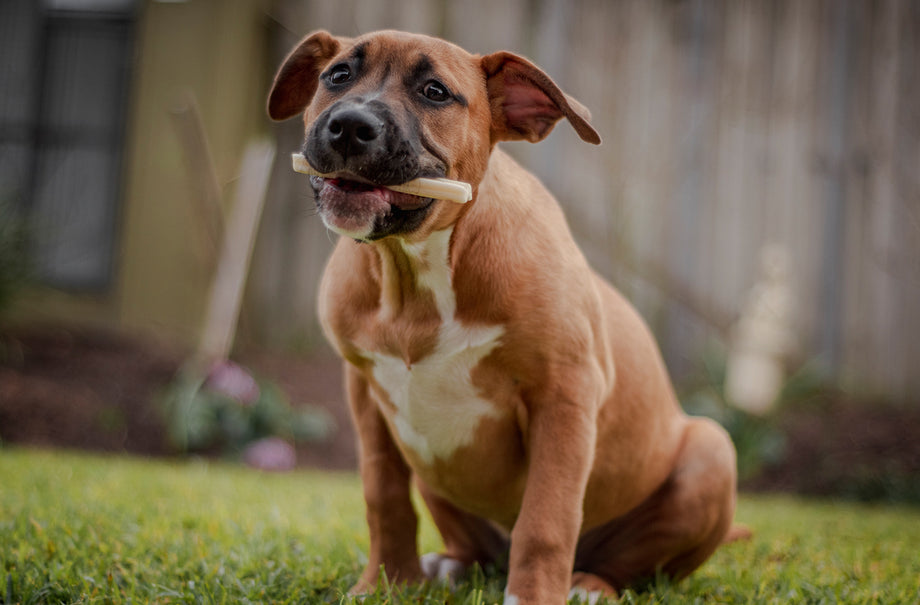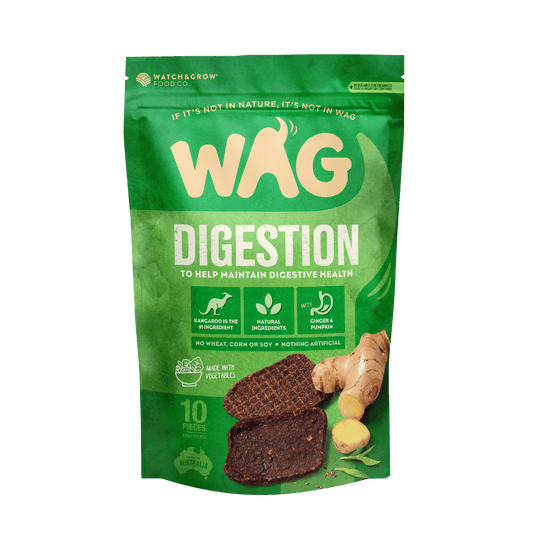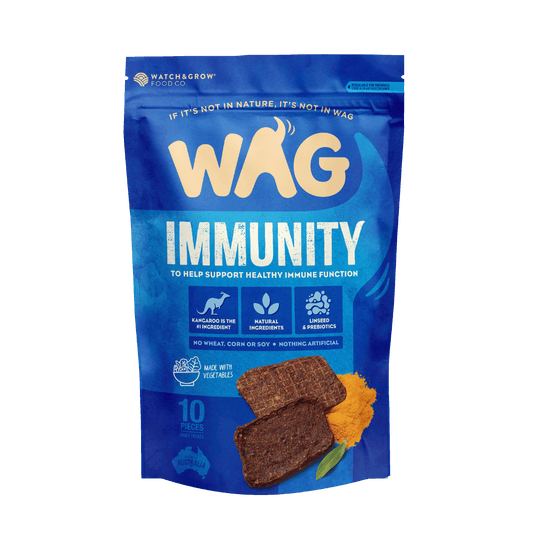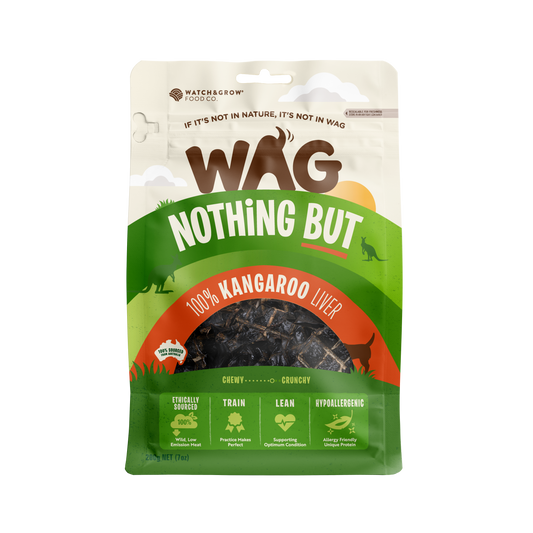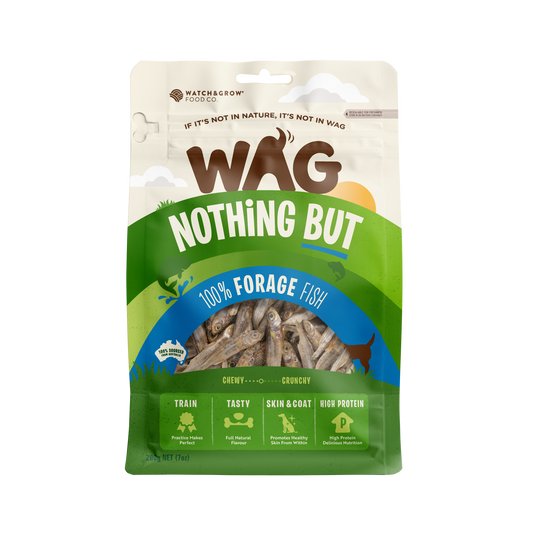Just like humans, dogs can suffer from gut health issues. Having a healthy gut microbiome is essential for your dog to live a happy and healthy life. Every dog is different and therefore there's no 'one size fits all' diet for all dogs.
Let's take a look at why gut health for dogs is so important, how to know if your dog has good gut health, and how to improve dog gut health.
Why it's important
The gut microbiome plays a vital role in the overall health and wellbeing of a dog, not just in their digestive health. As well as the positive of a healthy digestive system, a healthy gut microbiome will also help prevent disease and support the dog's immune system.
A healthy gut in your dog helps support the other systems in the body to ensure the body can function normally. Gut health supports bone health, energy levels, weight management and other aspects of wellbeing including reducing stress and minimising discomfort.
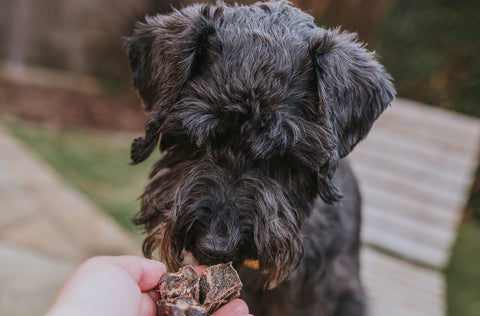
Signs of poor gut health in dogs
Poor gut health can appear in many different ways, and may come on suddenly, or be ongoing. Signs that your dog's gut health is struggling may include:
- Lethargy
- Abdominal tenderness and/or bloating
- Weight loss
- Constipation or diarrhoea
- Vomiting
- Dehydration
- Reduced appetite
- Blood or mucous in the stool
- Excessive scratching or itching
Common causes of poor gut health in dogs
There are some things that are more likely to cause poor gut health in dogs, so where possible, try to avoid or be aware of the following:
- Abrupt changes to the dog's diet
- Intolerances or allergies
- Stress or anxiety
- Eating something they shouldn't
- Medications such as antibiotics
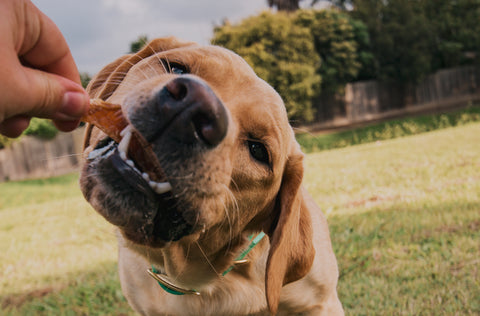
Improving dog gut health
There are things dog owners can do to promote a healthy microbiome in the gut of their pet.
Raw diet
Raw food contains protein and enzymes that help maintain optimal health in the gut of your furry friend. The enzymes in raw meat allow for easy digestibility and are less likely to cause digestive problems. That being said, whenever you transition your dog to a new food, make sure you do so slowly. Making sudden changes to your dog's diet can cause digestive problems such as an upset stomach. Switch to a raw diet slowly rather than all at once.
Probiotics and prebiotics
Just like in humans, taking probiotics can encourage good bacteria in the digestive tract and help balance the dog's microbiome. Probiotics help replenish gut flora, so are especially helpful after a round of antibiotics or following digestive issues.
Probiotics help reduce inflammation associated with inflammatory bowel disease or other digestive issues, as well as improving nutrient absorption and the immune system. You may consider introducing probiotic supplements slowly to your dog's diet.
Prebiotics act as a food source for the bacteria in the GI tract, which promotes the growth of beneficial bacteria.
Fermented foods are full of prebiotics, probiotics and beneficial bacteria to help improve the absorption of nutrients and heal the immune system. Slowly introducing fermented foods to your dog's diet can support good gut bacteria.
Exercise and play
Regular exercise and play will help reduce your dog's stress levels. We know that stress can negatively impact a dog's gut health, so any activities that help a dog de-stress will be beneficial. Exercise also has the added bonus of helping to regulate the digestive system.
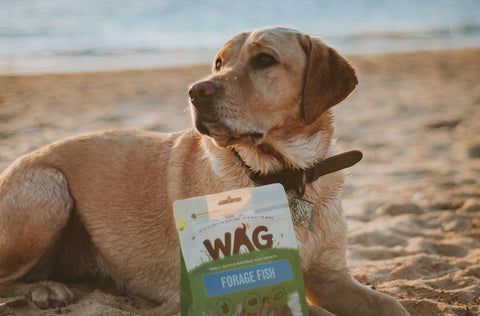
Bone broth
Add bone broth to your dog's food to increase the absorption of nutrients. Bone broth is full of collagen and amino acids, and can help prevent leaky gut. Bone broth also has anti-inflammatory properties which is beneficial for your dog's stomach and GI tract.
If you're ever concerned about your dog's health, make sure you see a vet.
Signs of healthy dog gut health
Here are some signs that your dog's digestive health is in good order:
- A shiny, full coat
- Regular bowel movements
- No abdominal discomfort
- No excessive flatulence
- General good health
- Good energy levels relative to their age
- Good immune function
Healthy diet
A healthy diet is a vital step in achieving and maintaining good gut health for your pooch. As above, ensure you make any changes to your dog's diet slowly, and introduce raw food and probiotics.
Every dog has different dietary requirements depending on their breed, age, size, allergies and health conditions. It's important you feed your dog based on their own dietary requirements, using advice from your vet.
Just like humans, some dogs have food intolerances. If you think your dog is intolerant to a specific food, try to stick to a different single protein source for a few weeks and see if symptoms improve. Your vet will be able to offer more information on identifying food intolerances in your pet.
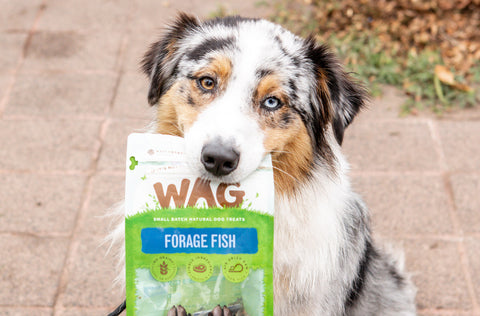
Healthy Dog Treats
We believe all doggos deserve delicious treats on occasion - but it's important to ensure you aren't offering treats that are going to be harmful to their gut health. Our range of natural dog treats allow you to spoil your loyal pooch without compromising their health.
Check out our range of natural dog treats such as forage fish and kangaroo dog treats from WAG - all natural treats that your dog (and your dog's gut!) will thank you for.
Shop the Recipe
WAG Team
Up Next
A Guide to the Best Gifts for Your Doggo This Christmas in 2022!

